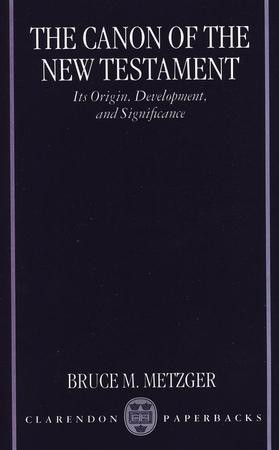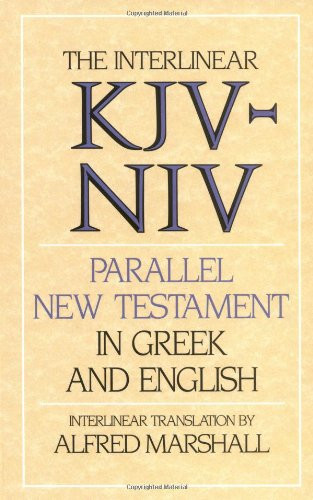Furthermore, the book of Revelation was included in the Judeo-Christian Bible in the 4th Century,
Yes indeed. But by whom? And why did it take them that long? (Was God asleep?)
I am aware of the history, and recommend the following book:
Is the canon still open? Which form of a text is canonical? Is the canon a collection of authoritative books or an authoritative collection? Dr. Bruce Metzger, tackles these questions, discusses the pressures that led to the fixing of the canon, and gives detailed attention to both Western and...

www.christianbook.com
The question is why should one believe that those who "included" the book of Revelation made the right choice? After all, the Bishops who told you that Revelation was scripture (after centuries of debate and rejection by other Bishops) also brought you the doctrines of purgatory and limbo, and held to a very different Soterilogy (the doctrine of how one is saved) than what the Protestant churches preach today. In addition, the RCC Church, (the Synod of Carthage, A.D. 397 that finally included "Revelation"), holds to an extremely different viewpoint of scripture than do the Protestants. To the RCC, there is no "Sola Scriptura" doctrine - Sola Scriputra is heresy ... (to the Catholics).
The only reason that the Protestant Church presents the same 27 book New Testament is that Martin Luther was Catholic to begin with and when inventing the doctrine of "Sola Scriptura" as a replacement for the authority of the Church Fathers (specifically the Pope) locked himself into a canon of books that not even he wanted. Luther wanted James and Revelation removed, but realized that this would destroy the credibility of his foundational doctrine of Sola Scriptura. As it is, when Luther authored the first German Bible he purposefully mistranslated two Greek passages in order to bolster
his idea of how one is saved.
The Church of the East (think Church of the Far East), started by the Apostle Thomas, was never corrupted by the Roman Empire and Constantine. In addition, their New Testament was written in Aramaic, not Greek, and is likely more authentic to the words of Jesus, as it is well understood that Jesus preached in the Aramaic language. Here's a link to their Interlinear (please review the table of contents).
The Holy Aramaic Scriptures: With a literal English translation and transliteration of The Eastern Peshitta New Testament Text, such as given in The Khabouris Codex.
www.thearamaicscriptures.com
and the irony of which says the following:
Yes, and the irony should tell you something. However, does that passage refer to the entire Bible? or just the book of Revelation? Take a closer look at the text and you'll see that this declaration only regards the book of Revelation itself:
For I testify unto every man that heareth the words of the prophecy of THIS book, If any man shall add unto these things, God shall add unto him the plagues that are written in this book: And if any man shall take away from the words of the book of this prophecy, God shall take away his part out of the book of life, and out of the holy city, and from the things which are written in this book.
(Revelation 22:19 KJV)
Truly, the only reason to say such a thing is to instill FEAR into the reader. However:
Herein is our love made perfect, that we may have boldness in the day of judgment: because as he is, so are we in this world. There is no fear in love; but perfect love casteth out fear: because fear hath torment. He that feareth is not made perfect in love.
(1 John 4:17-18 KJV)
how can you take the position in your faith to exclude the book of Revelation when this inspired by Jesus passage also states herewith:
“EVERY word of God is flawless; he is a shield to those who take refuge in him.“ (Proverbs 30:5)
How can you take the position in your faith to
INCLUDE the book of Revelation? A book that had been rejected by the early church for more than 300 years, and has done absolutely nothing but cause fear, division, and strife, creating countless "end-time" cults? And even accepting that Proverbs 30:5 is an "inspired by Jesus passage" (a debatable point), somewhere along the way, you accepted a teaching that states "The Word of God is this Judeo-Christian Bible" that you've been given. Indeed I agree that,
"EVERY word of God is flawless," but
who is the Word of God?
The Septuagint (aka LXX) is the Old Testament scripture used by the early church, and reads "
πάντες λόγοι θεοῦ" so again, I would ask, just
who is the LOGOS of God? "
he is a shield unto them that put their trust in
him."
So... somewhere, someone told you that the Bible is the Word of God. (Am I right? They sure told
me that...) But at this point, perhaps the best I can do is to encourage you to find out what the Bible says is the Word of God (and there are two of them). What I'm saying is that you're now the victim of a translation error,
and a definitional error, the end result of which hides the truth (an academic truth) about what the Bible itself defines the Word of God to be (again, there are two of them).
And yes, I've been accused of heresy with regard to this topic, but how could one arrive at any form of heresy when using Biblical definitions, rather than Churchianity definitions?
... if you have chosen the wrong division of the faith ...
That's why I decided to learn Greek in order to read the Catholic text directly, and why I'd beg of you to get one of these -
Buy Interlinear KJV-NIV Parallel New Testament in Greek and English by Alfred Marshall ISBN 1991 edition Interlinear KJV-NIV Parallel New Testament in Greek and English Alfred Marshall

www.americanbookwarehouse.com
Do you see why I have come to this forum to try and remove this type of biblical facts in a logical manner?
BrotherDThomas, of all the people here on this forum, I'm probably the most likely to understand and empathize with your dilemma, as I've had to deal with these very same questions myself. And while I personally don't mind discussing such things in an open forum, it is without doubt that certain of my posts could cause great emotional stress, perhaps even to the most mature moderator, and if I get banned over certain specific doctrinal issues, I can't be of help to anyone. To that end, I am quite open to a continued discussion by PM (conversation) if you wish.
Just don't give up,
Rhema
PS: I respect anyone who decides that Revelation should be canonized scripture, in the hopes that they would return the same respect. I would just also hope that they actually have sufficient reason to believe so rather than just "because."



